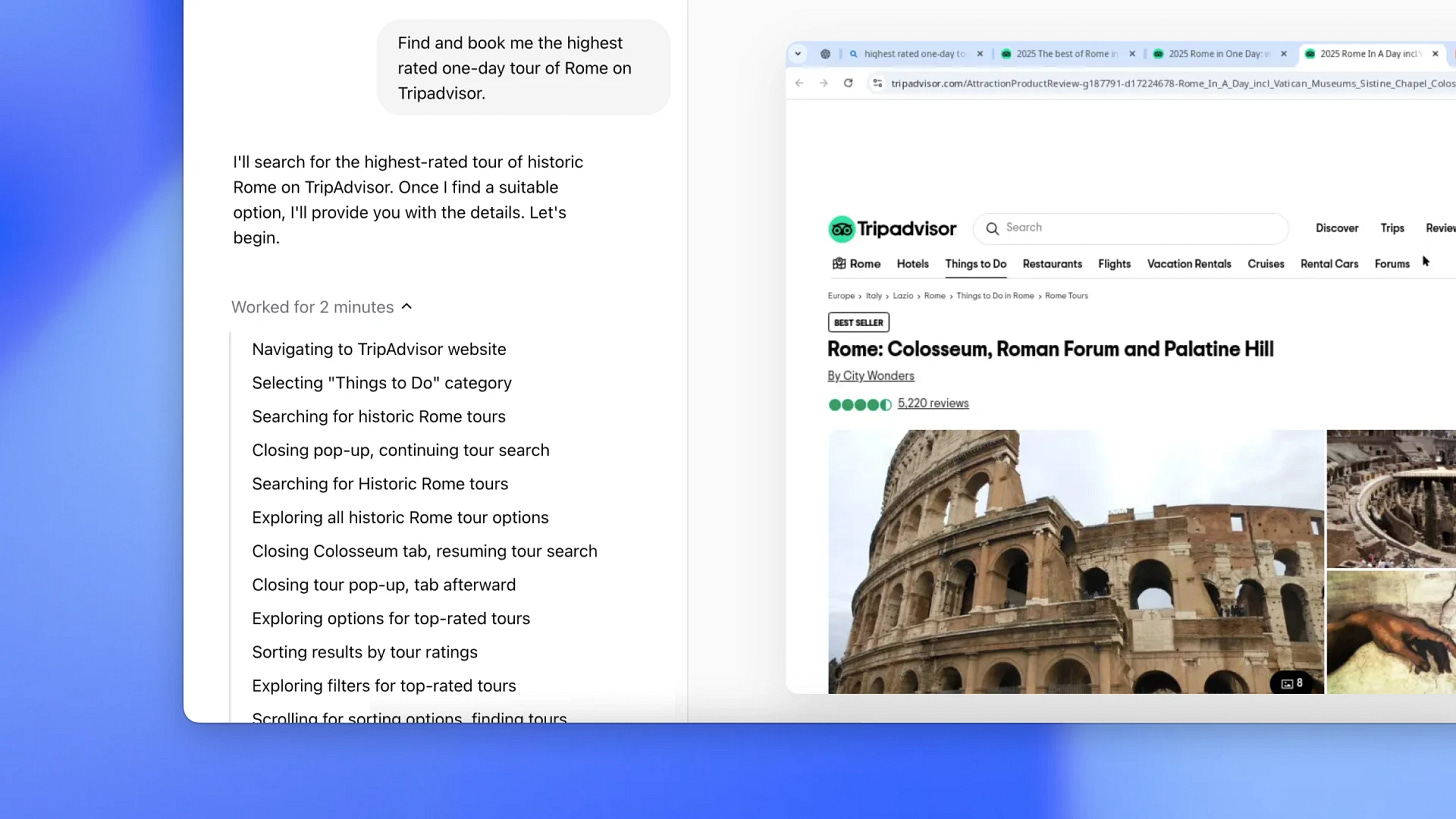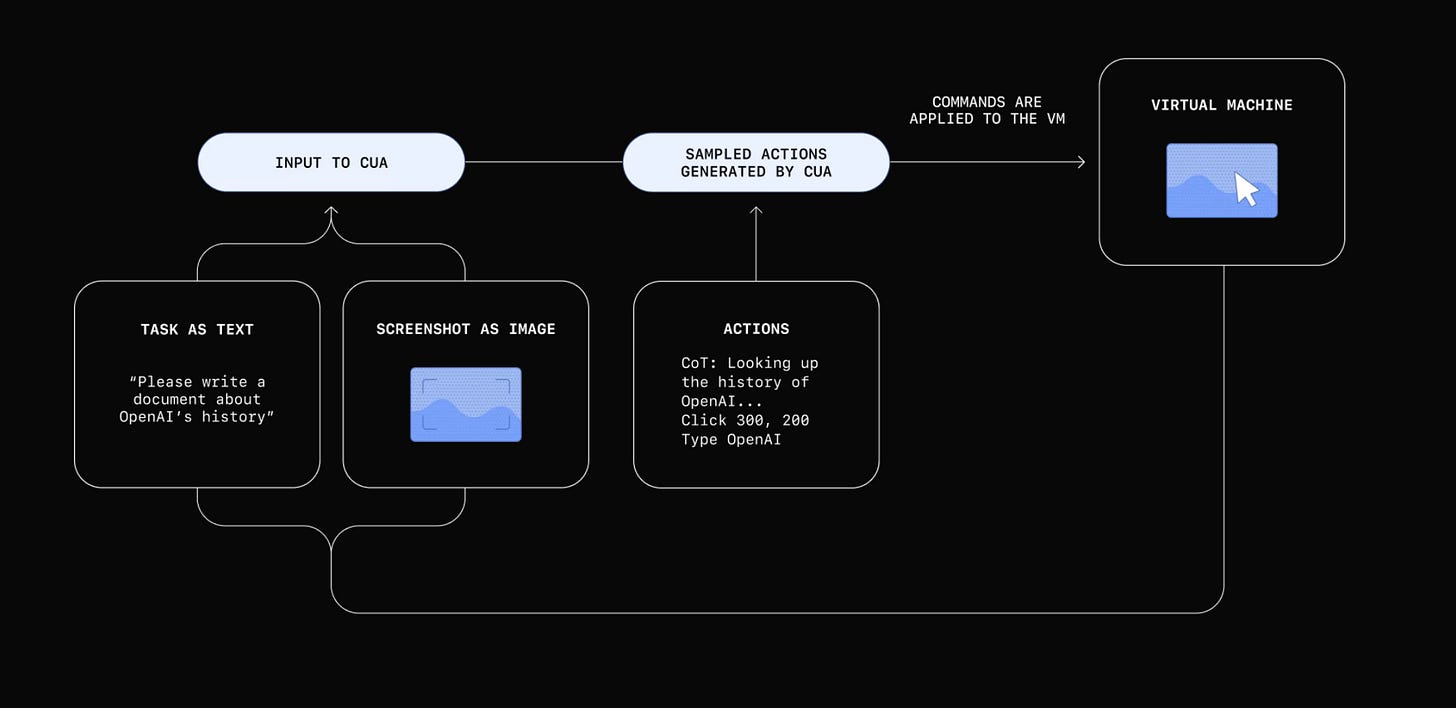OpenAI's Operator: The good, the bad, and the ugly
Privacy implications, community thoughts, and Web Browsing 2.0.
After months of talking about the rumored Agent Operator here on AI Disruptor, OpenAI had to go release it while I was on vacation. I know it’s Saturday, but I needed to say something on the matter.
I have not personally tested out Operator. I will soon, but for now, this edition of AI Disruptor is based on official announcements and my own community analysis.
I would love to hear if any of you are testing it out. Leave a comment below and let us know.
I probably don’t need to tell you that OpenAI released an AI agent called Operator a couple days ago. But I do need to tell you what I think it means, what it can and can’t do, what the community thinks, and why this is bigger than OpenAI.
Operator is powered by something called the Computer-Using Agent (CUA) - a new model that combines GPT-4o's visual processing abilities with advanced reasoning capabilities. Think of it as an AI that can actually "see" and understand what's happening on your screen, then make decisions about how to interact with it.
Instead of relying on APIs or special integrations, CUA uses screenshots and virtual inputs to interact with websites just like a human would. It processes what it sees, plans its actions through chain-of-thought reasoning, and then executes them through virtual clicks, scrolls, and keyboard entries.
What can it actually do right now?
Current capabilities:
Fill out online forms
Book travel and make reservations
Create and manage spreadsheets
Handle repetitive browsing tasks
Follow custom instructions for specific websites
But there's a catch.
Early testing and community experience reveals some important limitations:
Speed issues: Many users report tasks taking 3x longer than manual completion
Interface struggles: Complex interfaces like calendar systems often cause problems
Reliability concerns: It frequently needs user confirmation and can get stuck on CAPTCHAs
Usage limits: Daily and task-specific rate limits restrict heavy usage
Looking at the bigger picture, Operator isn't just another AI tool or feature - it's OpenAI's move into what they're calling "computer-using AI." With an 87% success rate on real-world websites (according to their WebVoyager benchmark), they're positioning themselves in a new competitive space alongside Anthropic's Claude Computer Use and Google's Project Mariner.
But one of the most interesting parts is that OpenAI plans to expose the CUA model via an API, letting developers build their own computer-using agents. This would hlep create an entirely new ecosystem of AI-powered automation.
I think this is one of the more important aspects of the release.
All of this is one more step towards a shift from AI that simply processes information to AI that can actually take action in the digital world. The implications for businesses, developers, and everyday users are significant - but they come with important caveats we need to understand.
We need to talk about the privacy implications
We're sleepwalking into a privacy transformation that goes far beyond just giving an AI access to our browser. We really need to talk about this more.
OpenAI is creating an infrastructure dependency that's surprisingly clever. Operator requires users to work through OpenAI's browser environment, effectively centralizing user activity through their systems. Think about what this means: every click, every form fill, every interaction flows through their infrastructure.






